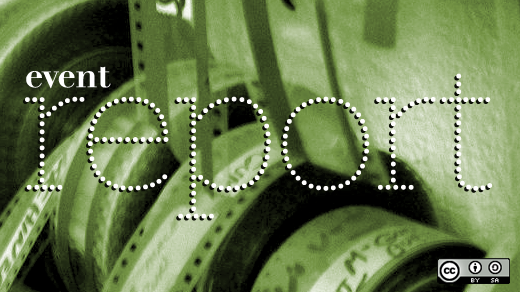The Association of Computing Machinery's Special Interest Group in IT Education (ACM-SIGITE) met at West Point's Thayer Hotel on the first day of the three-day conference--and free and open source software (FOSS) was one of the top items on the menu.
The conference offered a three-paper session and a panel on using FOSS in the classroom that were well attended and generated good questions (and answers) about approaches, tools, and techniques for bringing students into FOSS.
The paper session went from broad to narrow, beginning with Learning in the GNU/Linux Community, presented by Donald Davis and Iffat Jabeen from the University of Texas at San Antonio. They presented the results of a two-month survey with a staggering 4,603 respondents. The survey asked questions about learning activities in FOSS communities. The bottom line question was essentially this: "Is the GNU/Linux community a 'Community of Learners." They were asking if the Linux community is a place where newbies come to learn from old hands. If so, what is there about it that makes it all happen? This has an impact beyond the computer science classroom, as a corollary of the question is really, "Are FOSS practices and methodologies worthy of adopting and applying to other educational domains or communities in and outside of formal education?"
While it may seem that the answer is an obvious 'yes,' their findings are useful for two reasons. Firstly, if you're not involved in FOSS, its not obvious. Secondly, for larger academic, industrial, and governmental communities this type of wide-ranging, quantitative support is as important as specific case studies or quantitative studies to help move the open source way into those communities. The paper is worth a look for some demographic data on the current (perceived) state of the community, especially in terms of percentages of users versus contributors.
Mihaela Sabin from the University of New Hampshire then presented Free and Open Source Software Development of IT Systems, a narrower look at five years of teaching FOSS in an IT program. The paper details the specifics of her classes and projects, as well as the ups and downs of her side of the student experience. One of the most important takeaways for educators was Sabin's theory that FOSS practices give educators the ability to provide greater communication and accountability within group projects in classrooms. Sabin asserts that common problems with team projects in classes, including low rate of success with prototypes, ineffective communication, limited reusability across projects, and less involvement in completion occur less often and are less severe when using FOSS methodology.
One of the most interesting points at the end of her talk was her call for a simple, common, FOSS-developed IT system to be used as a learning resource.
The paper session closed out with the presentation of Physics in Motion: An Interdisciplinary Project, presented by Professor Debra Smarkusky and one of her students, Stan Stacavage.
They discussed the creation of a satellite tool kit that models, analyzes, and does 3D visualization of space, land, air, and sea data. They used a collection of open APIs to a commercial product with an open educational license. They worked together with students and teachers from the physics department to create this tool kit.
Smarkusky said the success of the project allowed them to apply IT knowledge to physical science and expose students to commercial source code and documentation written by others. These materials had a larger scope, and students had to address how how to incorporate the externally developed software into a new application.
Following the three paper sessions, I attended a panel on Free and Open Source Software in Computing Education, given by Stephen Jacobs from the Rochester Institute of Technology, Cliff Kussmaul from Muhlenberg College, and Mihaela Sabin from the University of New Hampshire.
These three educators spent a quick half-hour covering tools and techniques for getting faculty and students involved in open source. Sabin and Jacobs both tend to have students work on humanitarian free and open source software projects. Kussmaul often has his students work on plug-ins for larger packages like Moodle.
When they took questions, the audience asked if there were problems with plagiarism in these approaches. In all cases, the professors stated that the FOSS process relies on shared resources. Students merely had to attribute the parts of the work they got from elsewhere, and rarely had problems. Additionally, since the projects are often student-initiated and they planned the work in class. So it was less likely for there to be pure plagiarism on a project.
Another question that came up was regarding IP rights, often an issue with universities who make some of their income from patent portfolios. In Sabin's case, she worked with her university administration well in advance to explain the background of the work. Since the clients were not for profit, she had little difficulty getting things cleared. In Jacobs' case, RIT IP policy states that assigned work for class that students do is owned by the students. Students who elect to take an open source course also elect to make their work open source. In Kussmaul's case, his institution is a small liberal arts college and there isn't an IP ownership issue.
At the wrap-up, the panel recommended that interested participants investigate the POSSE program (sponsored by Red Hat) for faculty training, and referred the audience to web resources like Teaching Open Source, HFOSS.org, and opensource.com for additional information on open source in education.







1 Comment